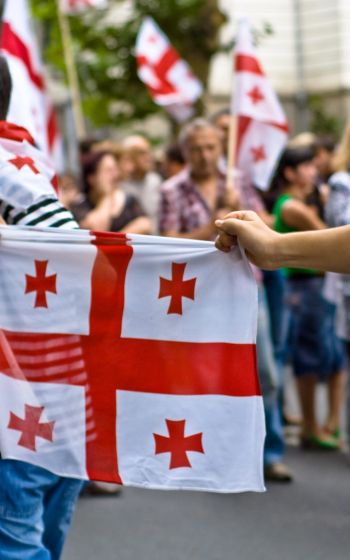Crisis in Georgia: how to support civil society while pressuring the authorities
On 18 December 2024, the Eastern Partnership Civil Society Forum (EaP CSF) held a discussion about the unfolding situation in Georgia. Georgian civil society representatives and EU and international stakeholders exchanged insights, updates and recommendations, and civil society expressed expectations from the EU and Member States on how they can better support Georgia’s democratic aspirations and civil society efforts.
The Georgian government’s decision to suspend the country’s EU integration process on 28 November has triggered widespread protests over the past three weeks, reflecting deep public discontent with the ruling Georgian Dream party.
With around 80 % of Georgians in favour of EU membership, these actions have alienated large parts of society and raised concerns about Georgia’s democratic trajectory and its relationship with the EU. The protests have been met with a surge of violent measures, including hundreds of arrests and incidents of police brutality and repression.
The Georgian Dream government is facing growing isolation both internationally and in the country, while employing new forms of pressure against Georgian civil society by weaponising legislation.
Civil society and independent media will not be able to continue operating freely in the existing context, and the risk to end up in a Russia-like scenario is extremely high, making the exertion of international and internal pressure crucial to revert the current trajectory which is taking Georgia to downright authoritarianism.
Recommendations to the EU, its Member States, and international organisations
The government is in need of international recognition and legitimisation, and measures should be taken to further its isolation, increasing international pressure, including through:
- Imposing sanctions on Georgian officials to isolate the Georgian Dream government
- Meeting with civil society and opposition representatives
- Inviting civil society and academia instead of Georgian Dream representatives to high-level meetings
Civil society and media are maintaining strong internal pressure while facing harsh repression. They should be supported by:
- Stronger political and direct financial support
- Increasing pressure on the Georgian Dream government to release the people who have been arrested and continue supporting the individuals who have been charged with criminal and administrative offences and their rehabilitation.
Read the report
You can download the full report through this link.
